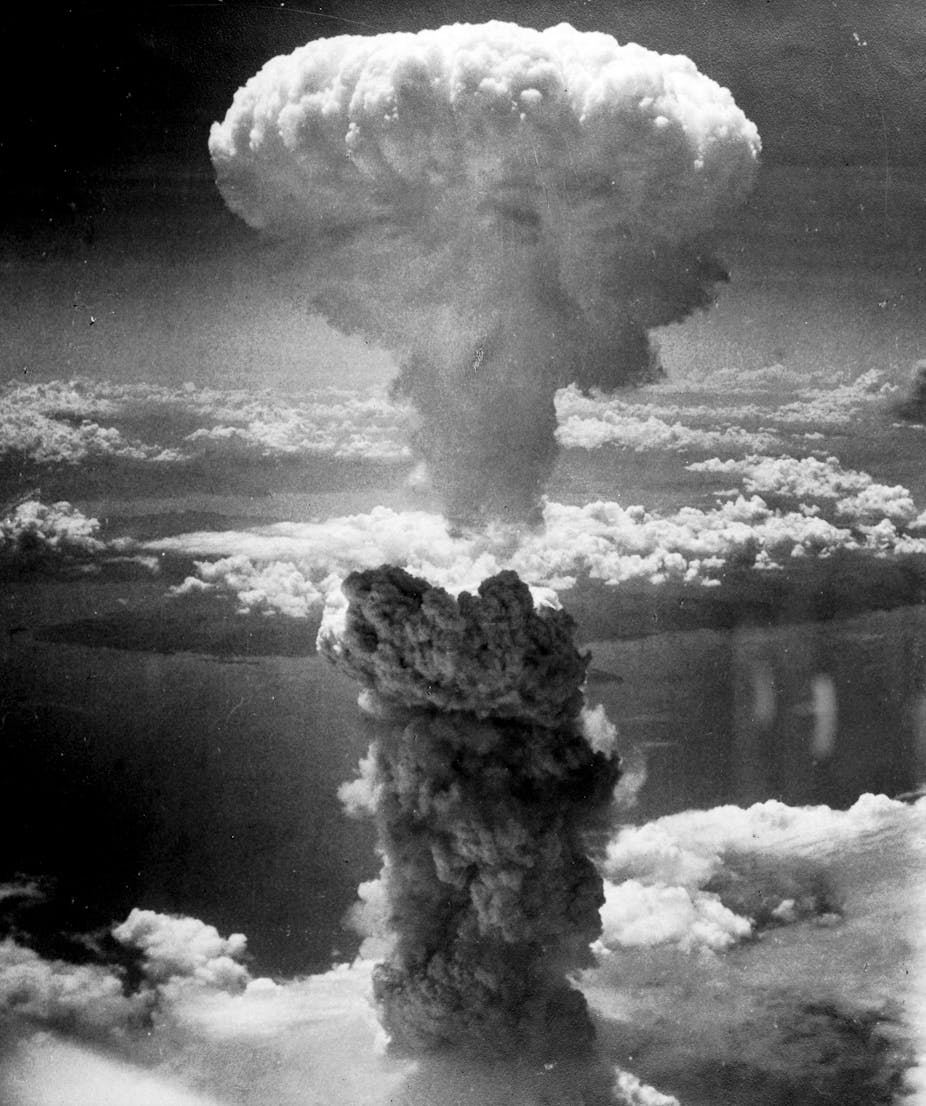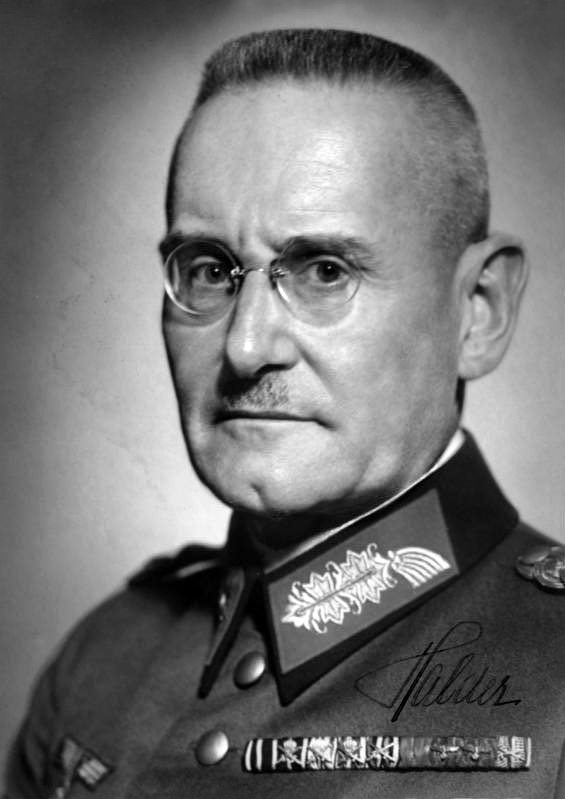BlackDragon98
Banned
Honestly, I nominate Jodl, Keitel, Halder, and Co. for Germany's worst.Stay on topic people don't make me get the Californian Ursine involved
Honestly, I nominate Jodl, Keitel, Halder, and Co. for Germany's worst.Stay on topic people don't make me get the Californian Ursine involved
Nope. You’re just objectively wrong here. There’s nothing to debate on this. There’s absolutely zero evidence that Hitler wanted to destroy Britain and using the laws applied to the Japanese at the Tokyo Trials, Mers-el Kebir would be a war crime. I recognize that Churchill might have felt that it was necessary to attack the French in that moment, just like many Japanese military officers felt that it was necessary to attack the Americans. Now let’s move on.Not sure what Tokyo has to do with this, aside from nothing. Hitler wanted to dominate Europe, using the resources of the conquered and raped lands in order to do so. He was an untrustworthy megalomaniac who would have destroyed the UK had he been given the chance. Here's what was planned for the UK, had Sealion succeeded:
Thousands of people who the Nazis deemed to be enemies outright murdered.
Women kidnapped and used in Nazi breeding camps.
Men between the ages of 16-45 taken to the mainland and used as slave labour.
Britain's cultural treasures plundered and/or destroyed.
And this is what I can only remember off the top of my head.
Mers-el Kebir was justified. Britain was fighting a war of survival and needed to do what it could to protect itself and those who were fighting Nazism. The best way to avoid it would have been the French simply handing over their ships.
Nope. You’re just objectively wrong here. There’s nothing to debate on this. There’s absolutely zero evidence that Hitler wanted to destroy Britain and using the laws applied to the Japanese at the Tokyo Trials, Mers-el Kebir would be a war crime. I recognize that Churchill might have felt that it was necessary to attack the French in that moment, just like many Japanese military officers felt that it was necessary to attack the Americans. Now let’s move on.
1. A NEW ARMADA WAS PLANNED
2. BLENHEIM PALACE WAS A SPECIFIC TARGET
3. DEATH SQUADS WOULD HAVE BEEN DEPLOYED
4. CIVILIANS WERE SET FOR SLAVE LABOUR
5. THE MONARCHY WOULD HAVE TRANSFORMED
6. BLACKPOOL WOULD HAVE STAYED... BLACKPOOL
Honestly, I nominate Jodl, Keitel, Halder, and Co. for Germany's worst.
Nope. You’re just objectively wrong here. There’s nothing to debate on this. There’s absolutely zero evidence that Hitler wanted to destroy Britain and using the laws applied to the Japanese at the Tokyo Trials, Mers-el Kebir would be a war crime. I recognize that Churchill might have felt that it was necessary to attack the French in that moment, just like many Japanese military officers felt that it was necessary to attack the Americans. Now let’s move on.
You don’t have to convince me that Hitler was a bad person.The Berlin Maniac was an incompetent who makes the worst leaders list and this example is how that can be proved.
Situationally, the ideas (^^^), the "so-called-leader" had, were crazy.
Now "want" is different from "capability" and that is kind of the nub of the incompetent leader under discussion.
Tojo and/or that other "war criminal".
And as for crimes against humanity? "Conspiracy to wage aggressive war is the cover charge." (^^^) Conspiracy does not have to imply capability. Merely the specific existence of provable plans to conquer, mass murder and enslave the UK, and or its territories under rule, would be exactly one of the specifications which the war criminal, Tojo, faced in his indictment and a reason why he was convicted and executed.

Yes. A powerful Germany was a potential threat to Britain as a power. Just like America was a threat to Japan as a power. This doesn’t make Mers-el Kebir morally justifiable in my eyes. Neither was Pearl Harbor. We’re probably not going to agree on this though.I mean the plans for Sealion/ post Sealion pretty much consisted entirely of systematically destroying Britain. Death squads would have been deployed, cultural treasures looted, Jews segregated (and worse), and pretty much the entire working age male population (I think 15 to 45) would have been deported for use as slave labor on the Continent. That policy was intended to crush any and all resistance before it could begin.
And even if Hitler was willing (at least initially) to play nice with Britain having a massive heavily militarized empire ruling all of Continental Europe (and presumably a good chunk of the Soviet Union without Britain acting as a distraction for the Nazis) is pretty inherently a massive threat to Britain. Peace gives the Nazis the chance to build up their forces even more so they could conceivably conquer Britain when they felt in the mood.
You don’t have to convince me that Hitler was a bad person.


1) My point isn’t to defend Japan. They started the war. I’m just not going to defend everything that Britain did.
If you, as a war criminal, start something...
you better be able to finish it.
Morality is easy for armchair generals to post-hoc... In the mneantime; WAR has only one practical moral rule.
Win, or else.
1) My point isn’t to defend Japan. They started the war. I’m just not going to defend everything that Britain did.
2) It’s not just me looking at it after the fact. The Naval officers and sailors at the time didn’t want to do it, because they felt that it was morally wrong.
We’re getting into the weeds here and this is off topic. My point wasn’t even about the morality of Hiroshima and Nagasaki (although it’s worth noting that the Japanese were willing to surrender if Hirohito was granted immunity). It was about Japan feeling threatened by the United States.Starving 5-7 million people to a slow gruesome painful death by naval blockade over a year, is more moral than incinerating 250,000 and letting another 200,000 suffer long term radiation sickness? I am asking just how much do you know about the mechanics of the Pacific War and what gruesome options there were to finish it?
Truman was given three choices.
a. Ground option. (DOWNFALL) 250,000-500,000 Allied casualties. Estimated Japanese murdered... about 1-2 million. 6 months in length. and then 5 million starve to death after they lose 1-3 seasons of agriculture because the fighting would ruin the farm land for at least that long.
b. Naval option. (BLOCKADE as per Orange) 5-7 million Japanese starved to death and maybe a 1,500,000 firebombed and murdered in the city killing that came with it. Length of time... 1 year.
c. Air-power. (City killing by all means including atomic weapons: the guesses were 1,000,000 murders and 3 months.)
Any war death is immoral because murder is murder, but quantity has a criminality of its own, ya' know?
People had those kinds of choices to make. Was Truman a war criminal or incompetent? You decide.
We’re getting into the weeds here and this is off topic. My point wasn’t even about the morality of Hiroshima and Nagasaki (although it’s worth noting that the Japanese were willing to surrender if Hirohito was granted immunity). It was about Japan feeling threatened by the United States.
People had those kinds of choices to make. Was Truman a war criminal or incompetent? You decide.

It’s irrelevant to my basic point about the morality of the attack on the French Fleet.It goes directly to LEADERSHIP under the most dire moral circumstances possible.
I generally defend Montgomery, but it must be pointed out that boldness in a General isn’t necessarily a flaw. Most of the most highly revered Generals in history have been bold risktakers. Market Garden was unsuccessful though.I find it ironic that the same people (and here I am not referring specifically to posters on this thread) who criticise Montgomery for excessive caution then blame him for the boldness of Market Garden. As above, like Gallipoli, the basic premise was sound but the planning and execution were flawed.
I personally think that he was a no more than adequate field commander but was excellent at the vision and management of the forces under him and his character failings were such that he was able to withstand the pressure of his superiors to act other than he believed was wise. A part of his autism was that he believed he was right and had no social skills to avoid offence. I believe that he recognised this in respect of the troops and his North African changes in his dress reflected a conscious, if clumsy, search for a public character for his troops to feel drawn towards.
My nearest connection to the man was my father who served under him in Palestine and France and later in the Western Desert. Montgomery captured the imagination of the troops as a man who would take no (metaphysical) prisoners amongst senior officers to get his way. The performance and standards of training of his Division in France and the UK afterwards made them the best amongst their peers. My father thought he was wonderful. I would have lasted barely minutes before clashing with Montgomery and be out on my ear.
BTW my father saw Orde Wingate doing his thing in Palestine pre WW2 and was convinced that the man was actually clinically insane,
It’s irrelevant to my basic point about the morality of the attack on the French Fleet.
Any list for Germany has to include Oskar Dirlewanger, quite possibly the single worst human being to ever exist.
It’s not though, there were other options. As I said before, the Japanese were willing to surrender if the Emperor was given immunity and he was. We’re never going to agree on this. Not only will I never see Mers-el Kebir as morally justifiable, but I don’t even think that it was legally justifiable under the laws that the Axis Powers were held to.Somerville had a moral choice akin to Truman;s choice about Japan in the calculus of choices and lives. Churchill made the ultimate call on that one in the radioed back and forth between Somerville and London.
I will write this, and I hope you understand it, RADM Ernest McWhorter (USN) would not and never hesitated. The risk of seeing a French war-fleet in the English Channel or used as raiders in the North Atlantic to attack British/Allied shipping. (The Force de Raid was called that for a REASON.) means Allied lives lost; if Somerville gets it wrong. An American with orders from Roosevelt would not have any qualms about acting ...because...
View attachment 523086
… It happened.